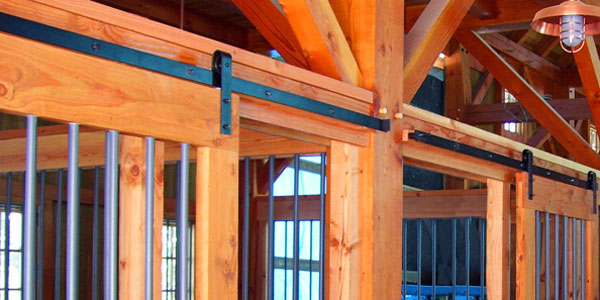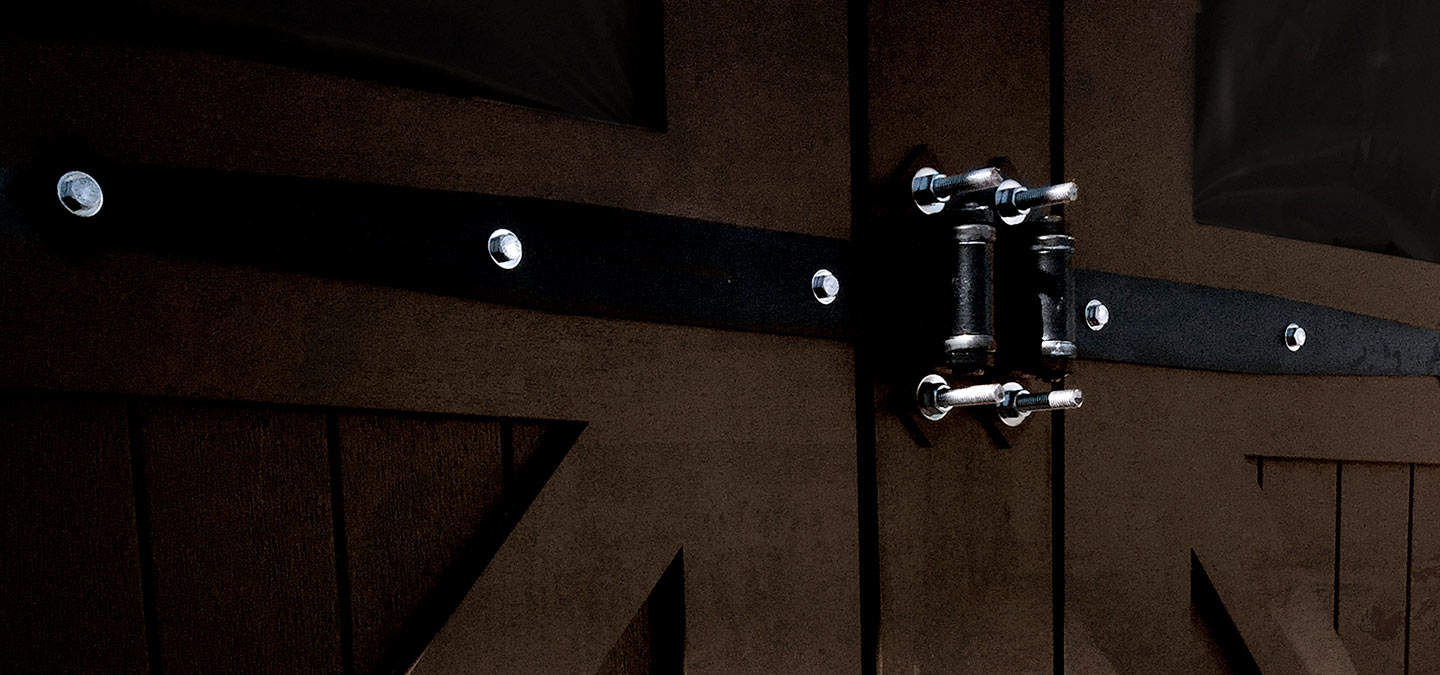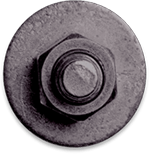In today’s world, functionality and aesthetics play a significant role in how we design our living and working spaces. One often overlooked aspect of these spaces is the door hardware that enables seamless and secure access to different areas. Specialty door hardware is designed to cater to unique requirements and specific applications, ensuring that your doors not only look great but also perform well.

Today we will explore what specialty door hardware is, and when it might be necessary to incorporate it into your space. Whether you’re dealing with exceptionally heavy or large doors, seeking unique applications, or operating in commercial or industrial environments, specialty hardware can provide the durability and longevity you need.
So, let’s dive into the world of specialty door hardware and discover how it can enhance the look, feel, and functionality of your space.
Understanding Specialty Door Hardware
Specialty door hardware refers to a range of door components that are specifically designed and engineered to handle unique door requirements, such as unusual door sizes, weights, or functions. These hardware components often utilize heavier gauge steel for better product quality, durability, and longevity. Additionally, specialty door hardware is designed to withstand various environmental factors and can be adapted for both interior and exterior applications.
Door Weight and Size Considerations
When it comes to door hardware, one of the critical factors to consider is the weight of the door. Specialty door hardware is recommended for doors weighing between 200 and 5,000 lbs, ensuring that the hardware will last longer and provide a safer, more secure experience. Similarly, the size of the door plays a crucial role in determining the need for specialty hardware. If your door is 7 to 24 feet tall or higher, or 50 feet wide or wider, specialty hardware is your best bet for maintaining functionality and durability.
Unique Applications and Environments
The type of door and its applications can also dictate the need for specialty hardware. From sliding and bi-parting doors to French doors, unique applications often demand specialty hardware for optimal performance. Furthermore, commercial and industrial environments typically require more robust and reliable door hardware, making specialty hardware a wise investment in these settings.
Climate and Weather Conditions
Another aspect to consider when selecting door hardware is the climate and weather conditions in your area. Specialty door hardware can offer the extra protection and durability needed for harsh weather conditions or regions with significant wear and tear. RW specialty door hardware features weather-proofing finishes that enhance longevity and performance in challenging environments.
In short, specialty door hardware is an essential consideration for those seeking a reliable, durable, and secure solution for their unique door requirements. By carefully evaluating your door’s weight, size, application, and environment, you can make an informed decision on whether specialty door hardware is the right choice for your space.
Selecting the Right Specialty Door Hardware for Your Needs
Now that you have a better understanding of what specialty door hardware is and the situations in which it may be needed, it’s essential to know how to choose the right hardware for your specific needs. This section will guide you through some key factors to consider when selecting the most suitable specialty door hardware for your project.
Assess Your Door Requirements
Begin by thoroughly evaluating your door requirements, including the dimensions, weight, and intended use. Consider the type of door you have (sliding, bi-parting, French, etc.) and the specific demands of your commercial, industrial, or residential application. This assessment will help you identify the essential features and specifications needed in your specialty door hardware.
Research and Compare Hardware Options
Once you have a clear understanding of your door requirements, research various specialty door hardware options available in the market. Look for reputable manufacturers and suppliers that offer high-quality products, such as RW Hardware. Compare different hardware components in terms of materials, durability, weather resistance, and other crucial factors to ensure you select the best option for your needs.
Consult with Professionals
When in doubt, it’s always a good idea to consult with professionals who have experience in specialty door hardware. They can provide valuable insights and recommendations based on your specific needs and requirements. You can also seek their assistance for proper installation and maintenance to ensure the longevity and optimal performance of your chosen hardware.
Budget and Aesthetics
Lastly, consider your budget and the overall aesthetic appeal of the specialty door hardware you are considering. While functionality and durability are critical, you should also ensure that the hardware complements the design and style of your space. Keep in mind that investing in high-quality specialty door hardware can save you money in the long run, as it will likely require less maintenance and replacement over time.
By carefully considering these factors and consulting with professionals, you can confidently select the right specialty door hardware to enhance the functionality, security, and aesthetic appeal of your space. With the proper hardware in place, you can rest assured that your doors will stand the test of time and continue to serve their intended purpose effectively.
Maintenance and Care for Specialty Door Hardware
Once you’ve chosen and installed the appropriate specialty door hardware for your needs, it’s crucial to ensure that it remains in excellent condition and continues to function properly. This section will provide you with essential tips and guidelines for maintaining and caring for your specialty door hardware.
Regular Inspection
Periodically inspect your door hardware for signs of wear, damage, or any issues that might impact its functionality. Check the hinges, tracks, rollers, handles, and other components for any signs of wear or loosening. Regular inspection will help you identify and address potential problems before they escalate, ensuring the longevity of your hardware.
Lubrication
To maintain smooth operation and minimize friction, it’s essential to lubricate your specialty door hardware as needed. Use a suitable lubricant recommended by the manufacturer, and apply it to the moving parts, such as hinges, rollers, and tracks. Be sure to clean any excess lubricant to avoid attracting dirt and debris, which could impede the smooth operation of your hardware, as well as negatively affect aesthetics.
Cleaning
Keep your specialty door hardware clean by wiping it down regularly with a soft, damp cloth. Avoid using abrasive cleaners or harsh chemicals, as they can damage the hardware’s finish. For stubborn dirt or stains, use a mild soap or detergent solution, then rinse and dry the hardware thoroughly.
Adjustments and Repairs
Over time, your door hardware may require minor adjustments or repairs to ensure proper alignment and functionality. If you notice any issues with your door’s operation, consult the manufacturer’s guidelines or a professional for assistance. Never attempt repairs or adjustments without proper knowledge and tools, as this could lead to further damage or compromise the hardware’s integrity.
Weatherproofing
For exterior applications or areas with harsh weather conditions, ensure that your specialty door hardware is adequately weatherproofed. Check the hardware’s finish for signs of wear or damage and reapply weatherproofing coatings as needed. Keep an eye on the seals and gaskets around your doors to maintain a tight seal against the elements.
By following these maintenance and care tips, you can prolong the lifespan of your specialty door hardware and ensure its optimal performance. Proper care and attention will not only help maintain the security and functionality of your doors but also contribute to the overall aesthetic appeal of your space.
Upgrading Your Existing Door Hardware to Specialty Hardware
If you’ve realized that your current door hardware is insufficient for your needs or that upgrading to specialty hardware would offer significant benefits, it’s essential to know how to make this transition. This section will guide you through the process of upgrading your existing door hardware to specialty hardware, ensuring a smooth and efficient transition.
Assess Your Current Hardware and Door Requirements
Before initiating the upgrade, evaluate your current door hardware and door requirements thoroughly. Identify the shortcomings of your existing hardware and determine the specific needs that specialty hardware can address. Consider factors such as door weight, size, application, environment, and any unique demands of your space.
Choose the Right Specialty Hardware
Once you’ve identified the areas where your existing hardware falls short, research and select the appropriate specialty hardware that addresses those needs. As discussed earlier, consider factors such as materials, durability, weather resistance, and aesthetics when choosing specialty hardware. Consult with professionals or hardware suppliers for recommendations based on your specific requirements.
Plan the Upgrade
Planning is crucial for a successful upgrade. Coordinate with professionals or contractors to ensure a seamless installation process. Determine the timeline, budget, and any potential disruptions to your space during the upgrade. Develop a contingency plan to address any unforeseen issues or delays during the installation process.
Remove and Replace Existing Hardware
With a plan in place, begin the process of removing your existing door hardware. Follow the manufacturer’s guidelines or consult with professionals to ensure proper removal without causing damage to your doors or surrounding structures. Once the old hardware is removed, proceed with the installation of your new specialty door hardware, ensuring that it is correctly aligned and securely fastened.
Test and Adjust
After installing the new specialty hardware, test the door’s functionality, and make any necessary adjustments. Ensure that the door operates smoothly and securely, and address any issues that may arise during the testing phase. Consult with professionals if you encounter any problems or require further adjustments.
Dispose of Old Hardware Responsibly
Finally, dispose of your old door hardware responsibly. Check if any parts can be recycled or repurposed and consider donating usable hardware to local organizations or charities. Proper disposal of old hardware helps minimize waste and contributes to a more sustainable environment.
By following these steps, you can efficiently upgrade your existing door hardware to specialty hardware, enhancing the functionality, security, and aesthetic appeal of your space. Specialty hardware is an investment that will serve you well over time, providing long-lasting durability and performance for your unique door requirements.
Final Thoughts on Specialty Door Hardware
Specialty door hardware is an essential aspect of ensuring that your doors meet the unique requirements of your space, whether in terms of size, weight, application, or environment. By understanding the benefits and applications of specialty hardware, you can make informed decisions to enhance the security, functionality, and aesthetics of your doors.
Upgrading to specialty door hardware is a worthwhile investment that can save you time and money in the long run, providing enhanced durability, longevity, and performance for your doors. By carefully assessing your needs, selecting the right hardware, and properly maintaining it, you can enjoy the benefits that specialty door hardware brings to your space.
Remember to consult with professionals when necessary, and always prioritize quality and reliability when choosing specialty door hardware. With the right hardware in place, you can enjoy peace of mind, knowing that your doors are secure, functional, and visually appealing, contributing to an overall improved living or working environment.


